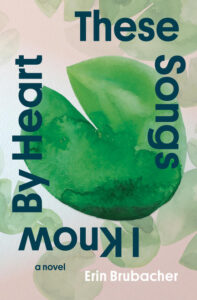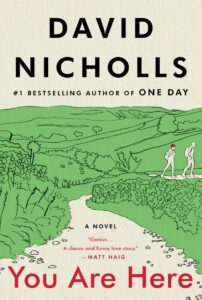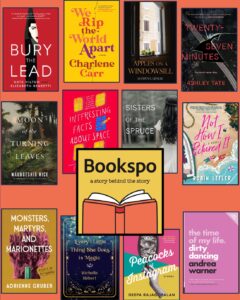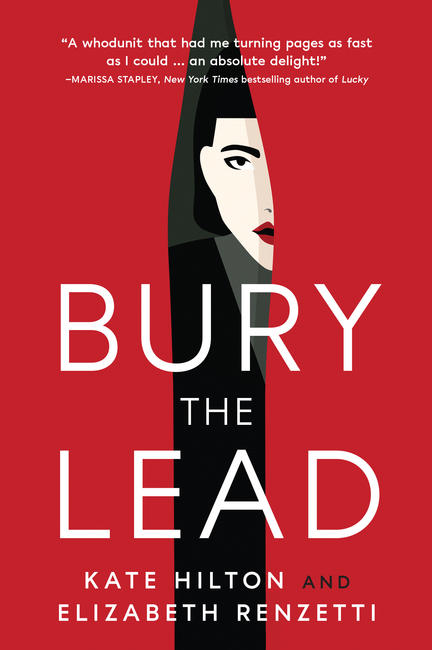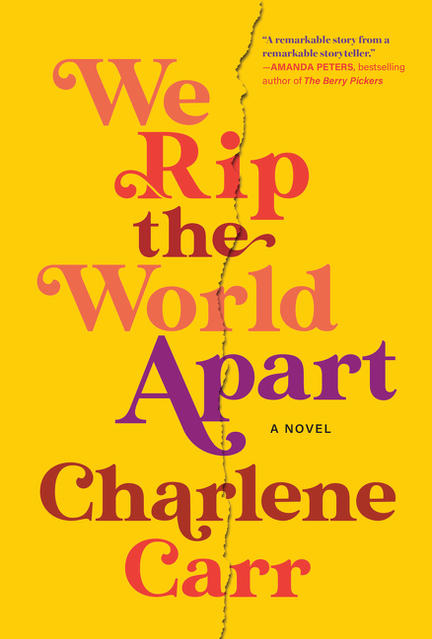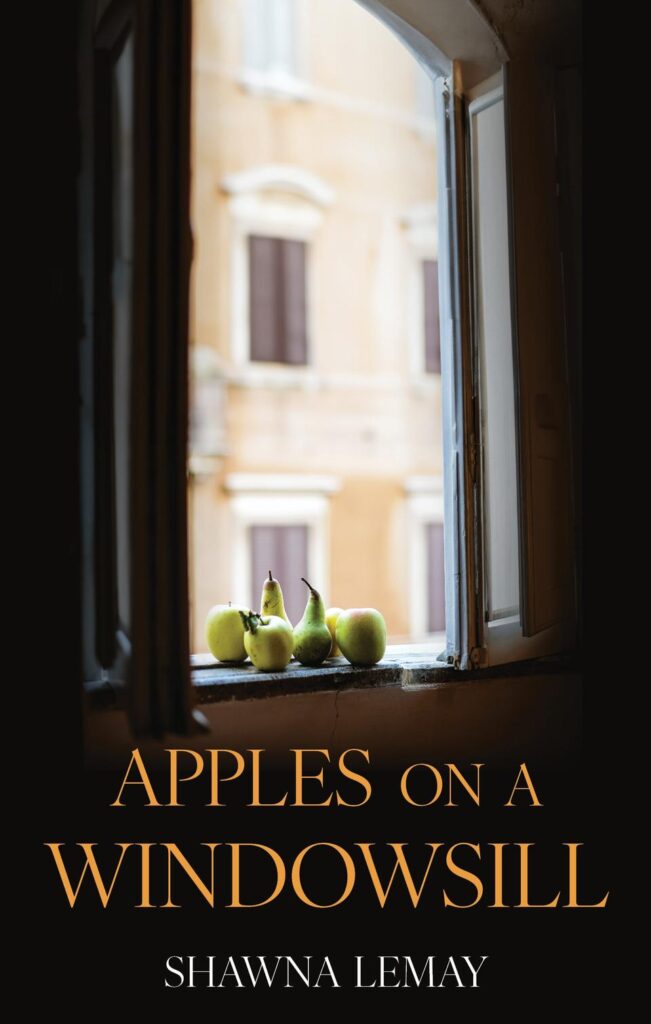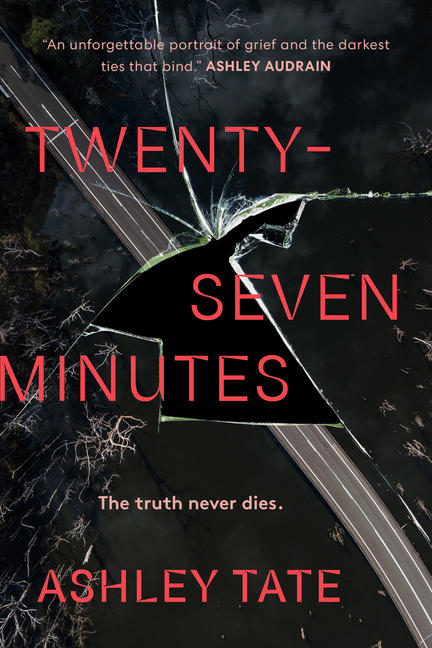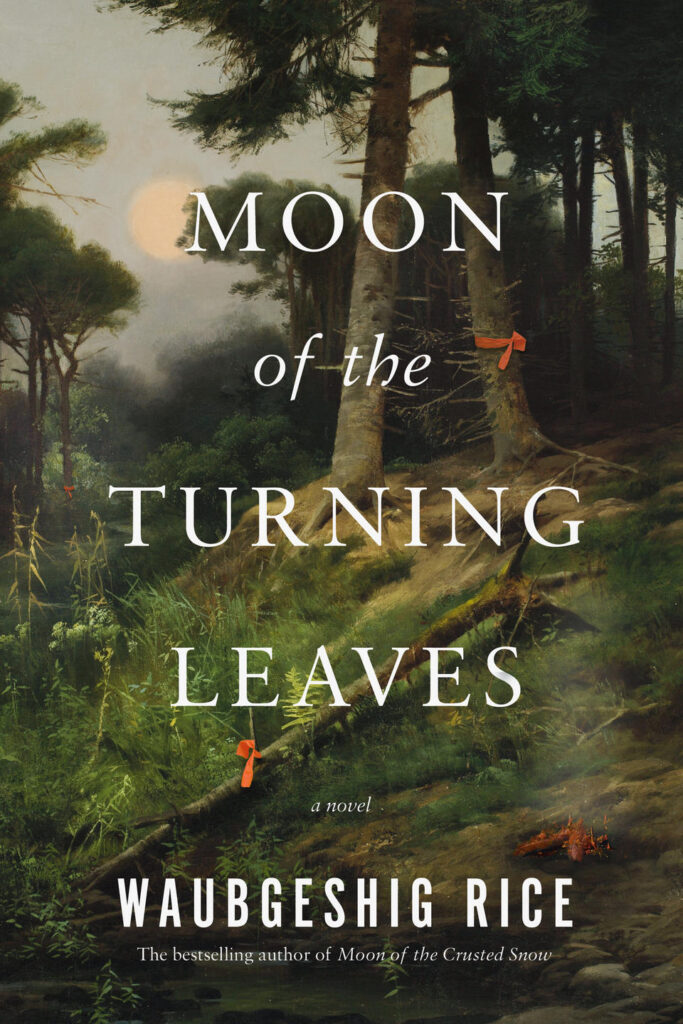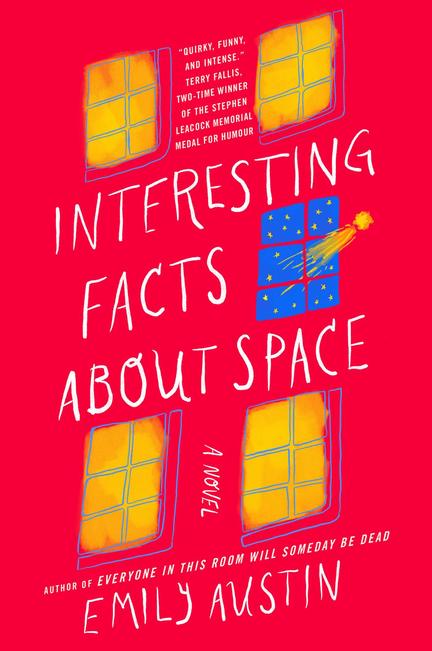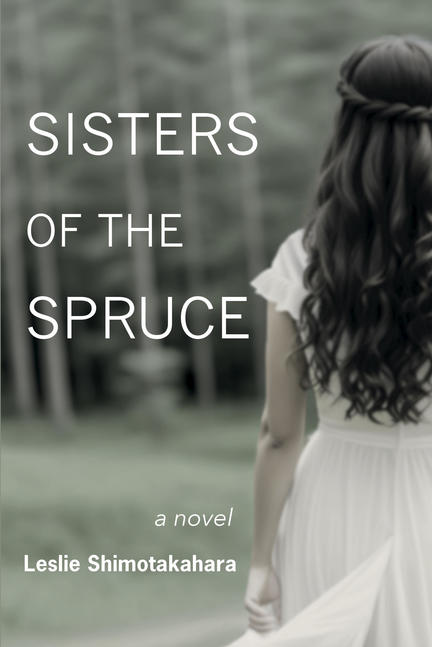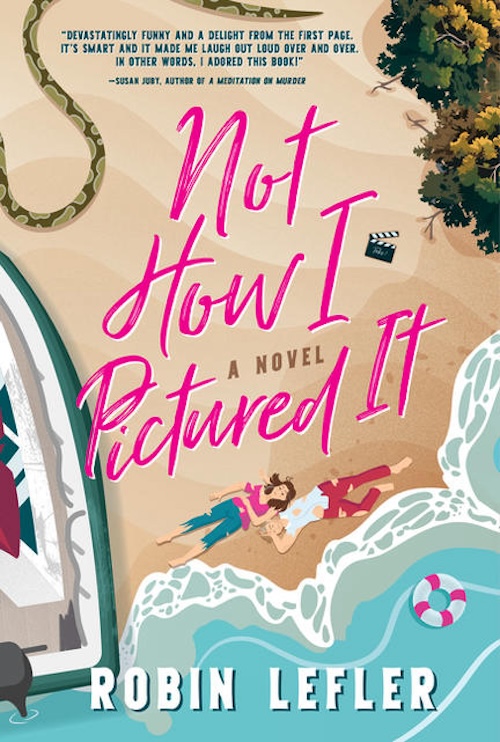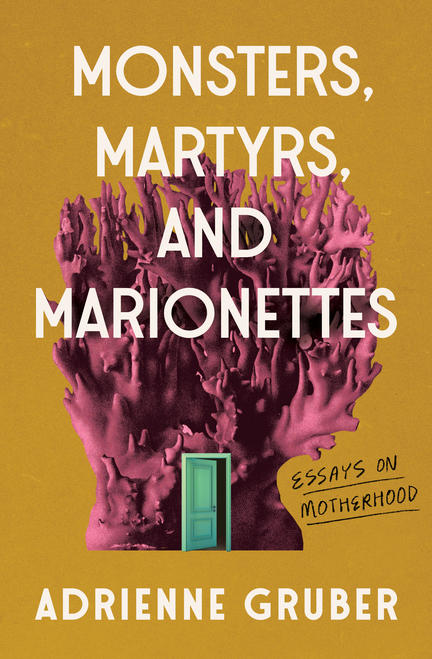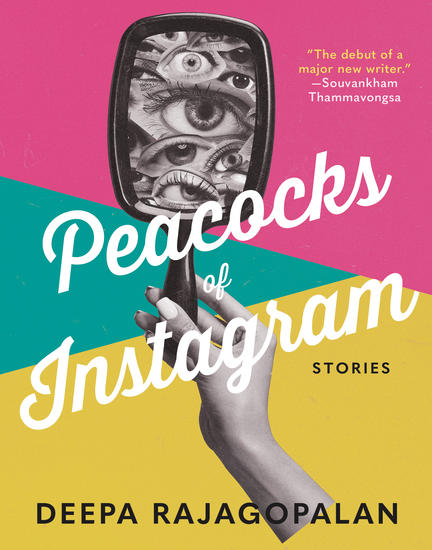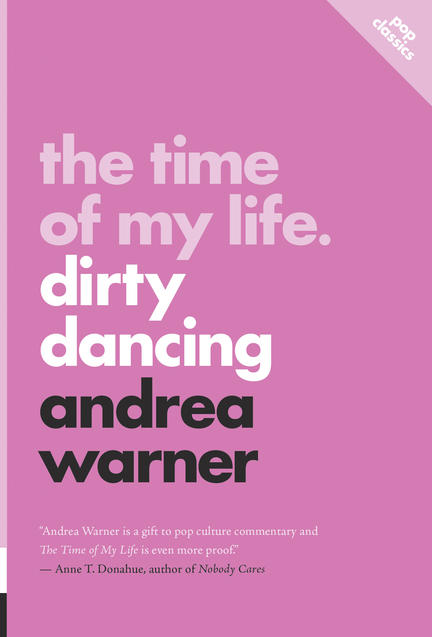June 21, 2024
Hello, City

During the pandemic, when nobody knew what was what, we’d stopped riding transit, and took over the empty streets of downtown on our bicycles, taking the St. George/Beverly bike lanes down to Queen, and then down Peter toward the waterfront, a mostly breezy journey except for the hill above Front Street where we’d cross over the railway tracks and around the Sky Dome, and then we’d arrive at the big plaza, where people never were, and we were able to ride on the sidewalks because no one else was using them, and that was pretty fun, even though nothing else was. And because we’d never cycled downtown before, I didn’t properly realize that it wasn’t always like this, that Peter Street was usually bananas, that my kids wouldn’t ordinarily be able to ride on the sidewalks as they pedal furiously to get up the hill, that the Sky Dome wasn’t actually a no man’s land. In the summer of 2022, when my kids were out of town, my husband and I rode our bikes all the way out to Woodbine Beach and back again, and needed to stop for a break at the Sky Dome before we’d hauled our bikes up the hill and over the bridge, and a Blue Jays game had just ended. People were everywhere, in their caps and their jerseys, and there was so much joy, and it was the first time in literally years that I’d found myself in a crowded space and not felt threatened. Remember, this was 2022, just post “Freedom” convoy, their clown cars and pick-up trucks still parading through the city, mean-spirited with loud honks and screaming slogans. Our city did not endure the siege that Ottawa did, but I still carry stress and fear from that time (and I have some ideas about where you might stick your hockey-stick flagpole). But that afternoon in the plaza behind that Sky Dome, the vibe was good, and it felt great to be part of the city again.
And now, almost 2 years later, those empty streets seem almost impossible to fathom, I’m back to riding public transit with ease, and the public transit vibe has returned to something resembling normal too after a scary period of violent incidents. Twice in the past week, I’ve found myself aboard a subway train crowded with Blue Jays fans—people of all ages, races, genders—and it’s been the nicest thing, a reminder of how far we’ve come. And while Toronto certainly has its challenges—don’t try driving anywhere; and a decade and a half of terrible mayors hasn’t helped—it just feels so good to be here, for this to be home. Vibrant streets and busy restaurants and gorgeous parks and winding trails and BIKE LANES and verduous trees and museums and theatres and bookstores and farmer’s markets and beaches, and people, so many people, all of us complicit in this same city project, and—especially after a hard few years—I’m just so happy to be part of it.
June 19, 2024
Gleanings
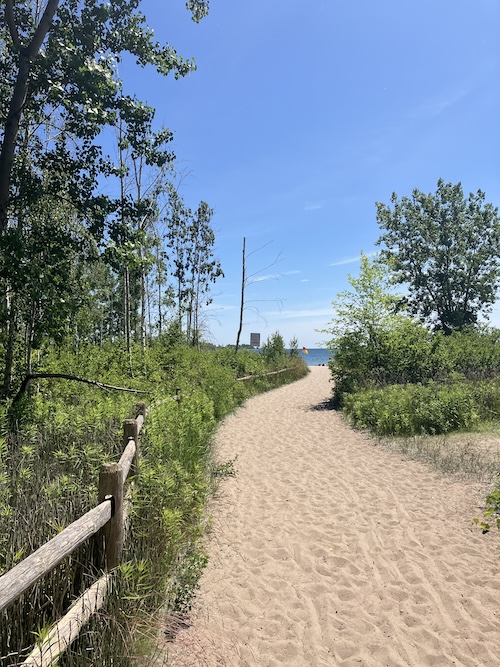
- Pity is only possible, it seems to me, when you see yourself as apart from the worst thing that happened to someone else.
- The song is timeless, but the video is not. Not for the grimy 1980s Britain it shows – though that too. And, to be honest, not because what happens in the video, a boy being beaten up because he’s looked, ever so tentatively, at the wrong, super-defensive, I’m-not-gay guy, isn’t something that happens today. But, maybe, because this was kind of a depressing but not unfamiliar story at the time, in a video played over and over again on all the top hit shows of the era. Watching it with 2024 eyes, it’s just brutal.
- It wasn’t until the 1970s that crossword-constructing started to become a job for male “boffins”. But it didn’t take long for them to displace women almost entirely, and their dominance has continued into the 21st century: today around 80 percent of crossword constructors are men.
- She says it isn’t the work or sending the work out or seeing it published or reading it to an audience or seeing it on a bestseller list or seeing it win a prize. Instead, she asks, “Isn’t the really good time when you are just getting the idea, or rather when you encounter the idea, bump into it, as if it has always been wandering around in your head?” She says, “It’s not the story—it’s more like the spirit, the centre, of the story, something there’s no word for, that can only come into life, a public sort of life, when words are wrapped around it.”
- I guess my taste in break up albums rests in the tough-ladies-of-country-music genre because the only other time I remember having a full, start-to-finish album that I associated with a break up was when I left an awful boyfriend in 1999 and listened only to Car Wheels on a Gravel Road by Lucinda Williams for months on end.
- What is it about June, the month where the shift to full-on summer and outdoor living beckons. Am I standing on the threshold, a buffet of options in front of me, unable to fathom if I’m making choices because I really want to, or because the season somehow demands that I change gears?
- Did you know that similar to tree roots, our veins are defined by the same fractals? In fact, blood vessels are one of the most impressive examples of a fractal branching pattern. Every cell in the body must be close to a blood vessel to receive oxygen and nutrients. And this is only possible through a fractal branching network where blood vessels branch and branch ever smaller.
- I’ve had these dresses for twenty years, some even longer, and up until recently I’ve looked to that portion of my wardrobe as a place that I’ll return to when …. When what? When I feel the verve to wear the kind of outfit that turns heads, the kind of outfit that pairs well with dancing and witty repartee. Someone draw me a bath –– I’m tired just thinking about it.
- Time and time again I expect life to be like the movies, people to think in a way that’s similar to me, events to unfold logically. And they don’t. And how could I know that? When was I supposed to learn this? I can’t even manage life’s most basic things well. Add other people and reader, it’s a gosh darned mess. Things don’t turn out the way you expect. Leaps of faith don’t always pay off and people don’t behave the way you think they will.
- I’ve been thinking about fractals lately. Thinking about how rivers look from the air, as a plane crosses the Rockies or the prairies or as I flew from Madrid to Granada in March and looked down at what was both unknown and also kind of familiar: the s-shaped curves, the smaller bends echoing the larger ones. Thinking about them in relation to family relationships too. And trying–that old word, the one at the heart of essay itself–to write about the patterns of our relationships to others. The Y of the maple branch that grows into air and breaks into another Y and another and another. The rivers meandering and bending and curving.
- I feel fortunate that I came across this definition of what a poet might be early on in my writing career. It’s expansive; it’s spacious. We’re all in this art dream together, using life as a time of approaching.
June 12, 2024
Weird Reading Place
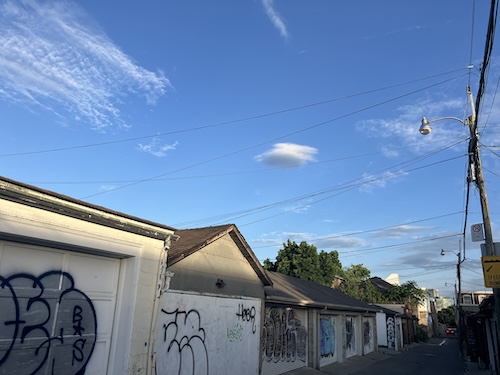
I returned Kelly Link’s THE BOOK OF LOVE to the library today, unfinished and with mixed feelings. I managed to read just over half of it, and if I could renew it, I think I would, but I can’t renew it (there is a line of people with holds who are waiting to get this GIANT novel [600 pages!] into their hands) and there is also a threshold of caring enough to get to the end that I just can’t seem to cross. Part of it is the tone of the book—it’s so even. And I don’t hate that, of course, and “uneven” is certainly a criticism, but yes, there is a steadiness to the narrative that’s the opposite of “gripping” or “exciting.” I’m also not deeply invested in the plot, which is all about magic, not my kind of thing at all (my experience of this book is similar to this one: “I finished it and I’m ready to tell you about it, because it’s Not My Sort of Thing, and yet I’ve read all 625 pages of it, even though it’s a genre I rarely touch. I’m even sort of mystified about why I ended up buying it, in hardback,” except that she finished it and I didn’t). If I could keep the book forever, I’d likely get to the end eventually, but that’s not a screaming endorsement, and also the book seems like it’s weighting me down a bit. I’m still in a weird reading place because I can’t go all-in on a 600+ page book I’m not that bothered about (this would likely kill me) so I’m reading another book as my “main book” but it’s really not not doing it for me, and I’m reading ANOTHER book (The Blue Castle, by LM Montgomery) in preparation for my June substack essay, but FOR SOME REASON IT FEELS LIKE MY ATTENTION IS SCATTERED. (I am also reading ANOTHER book, Shawn Micallef’s STROLL, which I am absolutely loving, and reading more avidly than I’d anticipating—I was expecting to read this book as a kind of walking guide, but it’s turned out to be an absolutely compelling, fascinating book to read when you’re not going anywhere all all). I’ve been more reading books quietly too, advanced reader copies (which usually aren’t my thing!) in preparation for Season Two of BOOKSPO, and that’s been good, but in general it seems like I’m reading 14 books at once and not getting anywhere with them, in terms of depth or toward and ending. And not being enthralled by a book is one of my least favourite states of being. I am not myself when I’m not reading something I love—it’s like going without lunch. It doesn’t help that it’s June and EVERYTHING IS HAPPENING and what I really really need is an afternoon in my hammock.
June 6, 2024
Message From the Middle
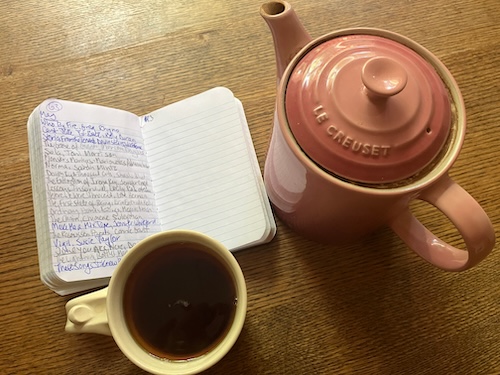
In December 2017, under the influence of Vicki Ziegler, and after much fretting and deliberating (was it really necessary to track my reads? Couldn’t I just read books like a normal person?), I finally started tracking the books I read in a notebook, which turned out to be the very best thing, and this week I reached the milestone of getting to the centre of my book of books. THESE THINGS I KNOW BY HEART, by Erin Brubacher, the 83rd book I’ve read this year, and the 1083rd book I’ve read since December 2017 when I began the notebook with LITTLE FIRES EVERYWHERE, by Celeste Ng. And I am so grateful to have this record, which is useful when anyone asks me what I’ve read lately (like I ever remember?) or I want to take a trip back in time to recall what I was reading on vacation in July 2019 (MIRACLE CREEK, by Angie Kim, PACHINKO, by Min Jin Lee, THE LAST ANNIVERSARY, by Lianne Moriarty), or later that summer when I was reading THE NEED, by Helen Phillips at Kew Beach, or the books that counted down the days before the world broke in March 2020 (POLAR VORTEX, by Shani Mootoo; DISFIGURED, by Amanda Leduc, all my little obsessions (when I reread Madeleine L’Engle’s Austin series in 2019, or 2018 when I read everything by Amy Krouse Rosenthal, falling in love with Sue Miller and reading EVERYTHING), the forgettable books that were forgotten, the UNforgettable books whose reminders make me feel so much (reading THE BURGESS BOYS while eating breakfast in a hotel lobby, how I couldn’t put it down). It’s not about the numbers, though the numbers are interesting too, but instead about the stories in the experience of reading the stories that the notebook has recorded, where over six years has taken me, bookishly and otherwise. And the other half of the notebook, its pages still blank. All that possibility, patiently waiting for each line be filled.
June 5, 2024
These Songs I Know By Heart, by Erin Brubacher
“Enthusiasm is actually the most important gift,” is a line I underlined in THESE SONGS I KNOW BY HEART, the debut fiction by multidisciplinary artist Erin Brubacher, which I think is true, and also might be why this book shone for me in a way that other autofiction usually doesn’t—though how would I know, really, considering that I almost never read it? But when I think about autofiction, I think of characters who are cool and detached, bored and languid—watch the me who is also not me while I lounge on a chair and do nothing—and so I rarely think about autofiction at all, but this book was different, vulnerable and earnest, about collaboration, about creation, the work of creating community, of creating a family that is part of a community, about friendship, and rituals, and all the acts that infuse our existence with meaning. The narrator is enthusiastic, that gift. She feels things, she wants things—which also means that sometimes she doesn’t get what she wants, or she loses what she has. Though what she really wants is a camping trip in Algonquin Park with her friend Alice, and much of the first part of the novel finds her there, reading and thinking and planning; hanging Alice’s lily-pad paintings up on the line with clothes pegs. The narrator spends a lot of time ruminating on her friendships, her connection to her ex-husband, her connections to strangers, her connections to the children in her life.
And then the narrative zooms out a bit, and back in time, and we learn the camping trip is situated during the uncertain summer of 2020, Brubacher telling the stories of the months leading up to it, the context, the narrator moving into a new home with her partner and stepchild, beginning the processes of IVF, her big beautiful world of art and company made tiny when the world shuts down in March. (“We’d managed to come up with the worst possible staging for the moment: the audience and performers were to be seated right next to one another…with a 150 person choir occupying the seats around the perimeter of the crowd, singing at them…. I’m levelled by the idea that, in this moment, a choir is the most dangerous thing… Everything in me wants to fight for the choir. I’m trying to figure out what that might mean, to fight for the choir.”)
Enthusiasm is a gift, and so too is this novel, which is steeped with enthusiasm, passion and feeling for extraordinary ordinary things, which is fighting for the choir.
June 5, 2024
Gleanings
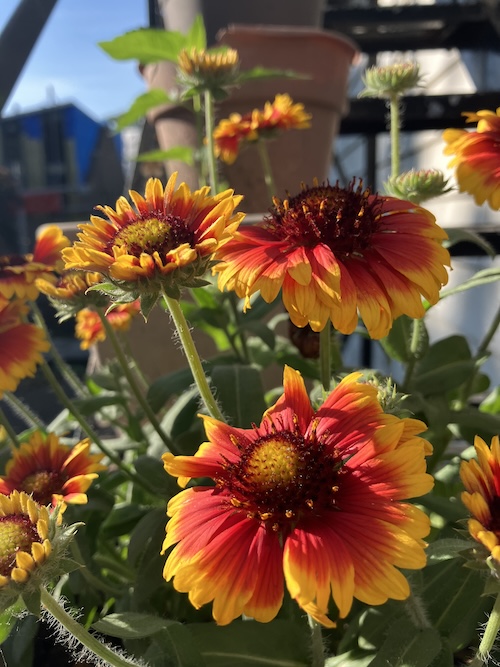
- A while ago I had some of that Aesop hand soap that is something like forty dollars a bottle. Used it up. Refilled the bottle (it’s a nice bottle, not forty dollars nice, but nice enough) with plain old fragrance-free Seventh Generation and did not really think much about doing that, except just now I was like I wonder if there should be a note in the bathroom for guests to not get too excited about the soap.
- Yet, it does make sense, too. I just take one step and another. I text one friend and another. I cook one meal and another. I read one book and another. I write one sentence and another. I hang one item of laundry on the line and another. I’m seeking coherence to this grand brief project called life.
- It’s been brought to my attention that I talk a lot about the weather, which I’m assuming is partly because I’m Canadian, but mostly because I’ve loved clouds and snow and thunder for as long as I can remember loving anything.
- In this case, I’d say: “Faulkner is dead. Let’s get A/C.”
- Having been housebound for five days, our walk was neither long nor far, but perfect for my wants and needs – a healthy dose of nature’s serenity. Surrounded by nature, I feel engulfed by calmness and the result is always a sense of renewal and replenishment. It’s my personal reboot — equilibrium restored, peace in my soul, joy in my heart. Corny? Undoubtedly, but true nonetheless.
- And then, another turn, and you’re out in the sunlight again. Birds are singing, flowers are springing, war is still raging, and those young people you’d set your hopes on for the future, are mindlessly gunning their motorcycles down the street.
- I actually don’t know how I got to it, but in the spring of 1989, as I was graduating with a honours BA in poli sci and was planning my move to Toronto to do a Masters at York, I made the difficult and life-altering decision to stop weighing myself. And I haven’t weighed myself since.
- 48 Things I love today on my birthday
- The goal is not to stop helping or abandon my core way of gazing out at the world—with wonder and love for my people and passion for the possibilities of more beauty and justice. The goal is to become ever more attuned to when help is connected, or when it is a compulsion, when it is consensual, or when it is controlling, when it is diving deeper into the marrow of life, and when it is a subconscious effort to escape life’s inevitable and sometimes gorgeous and sometimes cruel chaos.
- The first time Anna made and brought me a cup of tea, I said that was all I needed from her. Her familial obligations had been met. But then she made me a carrot cake with cream cheese icing for my birthday this year, which seemed like more than anyone could want. More recently, she saw that someone she followed on social media was posting about heaps of morels in Assiniboine Forest, which is one of my favourite places on earth and where I’d only ever found one or two morels. So she screencapped/sent me the info, but at the same time remarked: “I can’t believe I just brought you local mushroom news.” I responded: “You’ve reached your final form.” Like she was a Pokémon.
- I just planted the last of the dahlias. Saving something over the winter to plant again and have hopes for, is possibly my pride moment of the year, aside from the guitar thing and the fact that my daughter is a flaming badass.
- Life is difficult, and navigating it is difficult. I believe in triggers, though I can’t always predict what might affect me. Despite the hurricane, I’m not scared of wind storms. The other day, however, a cookbook fell open at one of Doug’s favourite recipes and I blinked away tears. His handwriting. A shoe store window displaying the red running shoes he yearned for (he asked for so little) that we couldn’t find when we were shopping for sneakers. And this weekend, a tent full of butterflies.
- Yesterday, waiting for a break in the weather to swim, I finally went anyway, a light rain brushing my shoulders, the water cold, the sky turning above me in its otherworld of clouds. I don’t why I waited for so many years to swim daily in cold water, held in its generous buoyancy, the sun, when it comes, lighting pools of green so clear the tiny fish show up, glittering. I loved the way my footprints in the grey sand disappeared underwater almost as soon as I’d walked out, erased by waves, just like that. And how the hoofprints of the deer who’d come to the shore, earlier than me, to drink were imprinted deep in the sand like petroglyphs.
- I love that the pancakes were the ruse.
June 4, 2024
Part of the Fabric of Everything
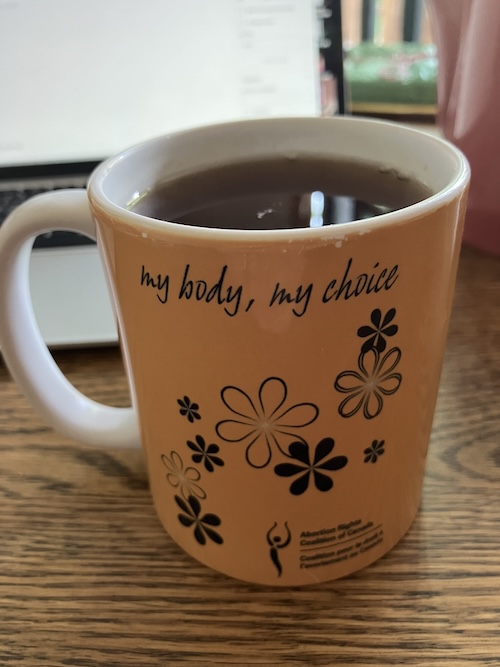
At this time of year, in the celebration of the ten day span between my children’s birthdays, and with my own birthday on the horizon (which reminds me of turning 23 when I was pregnant by accident but didn’t know it yet, and then also of turning 43 on the day that Roe vs. Wade was overturned, ending 50 years of federally-mandated abortion access for American women), obviously I am thinking about my own reproductive choices, especially the abortion 22 years ago that I was lucky/naive enough at the time to even take for granted, to suppose that decisions about my body—to choose when I did or did not want to be pregnant—were mine to make—as opposed to some evangelical MP from Saskatchewan, an activist judge in Florida, Dr. Seuss-quoting members of provincial parliament who went straight from their home-schools to the legislature, or any other random dude on Twitter.
I don’t talk about my abortion as much as I used to, which was perpetually, which was because it seemed like the matter was urgent, and it was, but also I got tired of saying the same things over again, robbing my words and stories of their meanings, and I also realized that Performing My Politics was not actually a sustainable way to live my life. And so over the past while I’ve been seeking quieter, more human and ordinary ways to embody all the values that are important to me, to not be making noise for the sake of noisemaking, because there is so much noise, and I don’t think it’s helping.
And what I mean when I say “I don’t talk about my abortion as much I used to,” is that I don’t talk about it here, on the internet, that I’m not longer yelling about it on social media, that I’ve stopped standing on a soapbox because the view wasn’t great, and real human connection was limited, but abortion still just as much a part of my ordinary life as it’s always been, part of the fabric of everything. The marriage that would never have happened had things not transpired as they did, the children who would never have been born, the perspective I would not have been afforded (once upon a time, I was a person who said things like, “I’m pro-choice, but it’s never a choice I would make for myself”), the stories I would never get to live and tell.
I’ve realized that my children understanding how abortion was integral to the story of our family is far more important than any social media post I’ll ever write. That conversations with friends over coffee are what matters too, discussions that give others the courage to put words to their own stories and dare to stay them out loud with their own friends and loved ones, and that we don’t always need to be blasting our politics on loudspeakers and screaming on placards, and that powerful things can happen in a chat in the cereal aisle. That small things can add up, and life is a long game, and so I need to find a way to keep going, to not wear my story out, to not wear myself out.
If you’re curious about my story, however—it you see your own story reflected in it, and/or if you aren’t ready to tell it widely and require an intermediate step OR if you simply don’t understand at all how a person can be grateful for such a thing as an abortion every single day (I really am!), and are compassionate and curious—we should talk, like humans do. (Please reach out if you are interested!)
June 3, 2024
You Are Here, by David Nicholls
Okay, I think I did read David Nicholls’ novel US, though I don’t remember it, but I do remember seeing his novel SWEET SORROW in the window of Palmerston Library in 2021 when the library was closed to patrons but we could point to items in the window and staff would bring them to us at the door and the set-up was a bit speakeasy, and I’d only selected the book because the cover was pool-blue and at first glance the two figures are floating in the water, except that they’re wearing clothes and reading books and it turns out this isn’t a swimming book at all, but I loved it anyway, SO MUCH, and its rich emotional tapestry was still on my mind when I decided to pre-order Nicholls’ new book, YOU ARE HERE, plus Katie Clapham had written about it, explaining, “David Nicholls writes the romance of reasonable people, and that’s very sexy to me.”
She also wrote: “Sometimes things are popular because they’re excellent. Sometimes the experience eclipses the hype. Sometimes you should just buy the new book from the number one best selling author of global sensation One Day and sometimes, only a David Nicholls novel will do.”
And I think she’s right. I read YOU ARE HERE this weekend, and adored it, and was also put through an emotional wringer, laughed out like a lunatic, and temporarily through that walking England coast-to-coast might be something that I want to do (and then I changed my mind).
It’s the story of Marnie and Michael who are connected by a meddling friend who is trying to set each one up with somebody else, and the two end up on a walking trip together, both forced by the meddling friend into breaking out of post-pandemic malaise and isolation. Both are divorced, Michael freshly, Marnie otherwise, and both bring four decades of life lived to the present moment, to their complicated and gorgeous textured connection, the chapters moving back and forth between their different points of view, the particular circumstances in which they find themselves leading to real vulnerability and introspection and epic cock-ups and misunderstandings, and kissing, a brush with death, and chance for both at happiness again. “Even with her sore eyes and hot, aching head, she felt that time was passing quickly and lightly and that a real summer, the first for many years, lay ahead.”
June 3, 2024
12 Essential Lessons for Writers from BOOKSPO
Bookspo Season 1 is complete, and I’m now at work on Season 2, coming this fall, but in the meantime, I want to sum up some of the wisdom shared by writers in this first round of interviews, lots of great tips and insight from writers across a ride range of genres. This is writing advice worth listening again for!
Thanks to all the authors who generously donated their time to this project, and thank you also (and ESPECIALLY!) to everybody who was listening.
Episode 1: Kate Hilton and Elizabeth Renzetti, Bury the Lead
Your characters have to be vulnerable.
Episode 2: Charlene Carr, We Rip the World Apart
Trust your gut about your character’s journey, and don’t worry about what your reader will think.
Episode 3: Shawna Lemay, Apples on the Windowsill
Know the importance of being an ordinary human being looking at the world and sharing what you see.
Episode 4: Ashley Tate, Twenty-Seven Minutes
Don’t be afraid of pushing the limits of genre to write the book you want to write.
Episode 5: Waubgeshig Rice, Moon of the Turning Leaves
Enhance the literary world you’ve built by writing a character who sees it through a different lens than you do.
Episode 6: Emily Austin, Interesting Facts About Space
That not everyone is going to like your book is a a hit you have to take along with the gift of the readers who embrace it.
Episode 7: Leslie Shimotakahara, Sisters of the Spruce
Literary inspiration for fresh stories can be found in classic texts and family lore.
Episode 8: Robin Lefler, Not How I Pictured It
Writing outlines is really valuable (even IF you think you HATE THEM).
Episode 9: Adrienne Gruber, Monsters, Martyrs and Marionettes
It is possible to inhabit a liminal space between literary forms.
Episode 10: Michelle Hébert, Every Little Thing She Does is Magic
Compassion and curiosity are important when you’re writing a villain.
Episode 11: Deepa Rajagopalan, Peacocks of Instagram
Writing with constraints can be inspiring and useful.
Episode 12: Andrea Warner, The Time of My Life
Be honest and thoughtful about the culture that inspires you—nothing is above reproach.
May 31, 2024
Something With Good and Evil
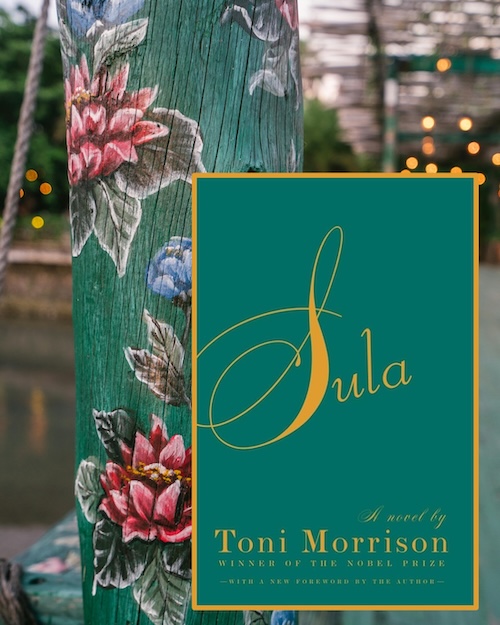
My May essay is about rereading Toni Morrison’s Sula, reconsidering this book about female friendship that is so much more than “just” a book about female friendship—but maybe that’s the thing about great books about female friendship—they’re always about so much more, because that’s the tangle that life is. Read it here! Many thanks to new subscribers—writing these pieces is so satisfying and you’re the icing on the cake.
